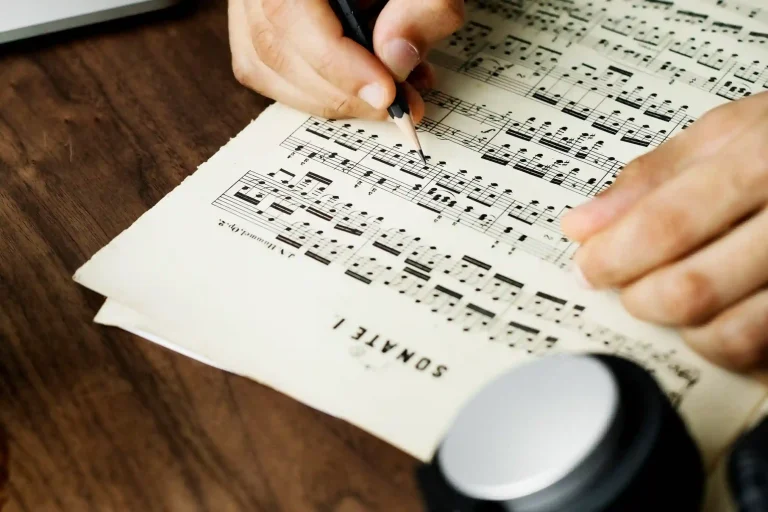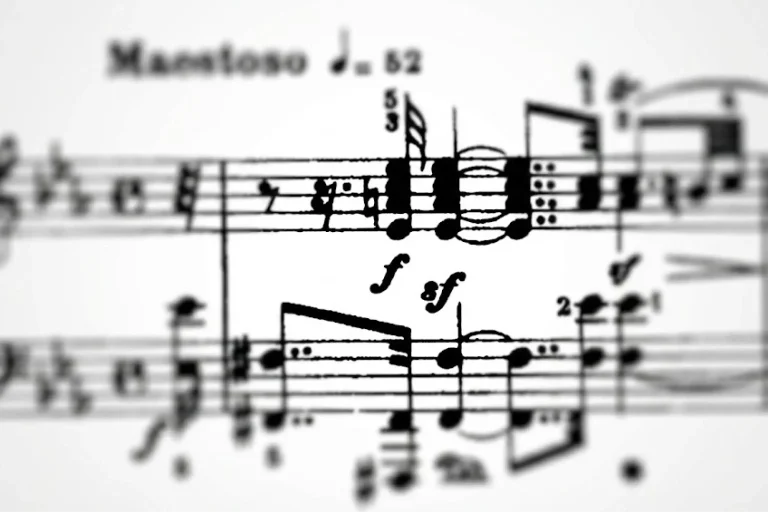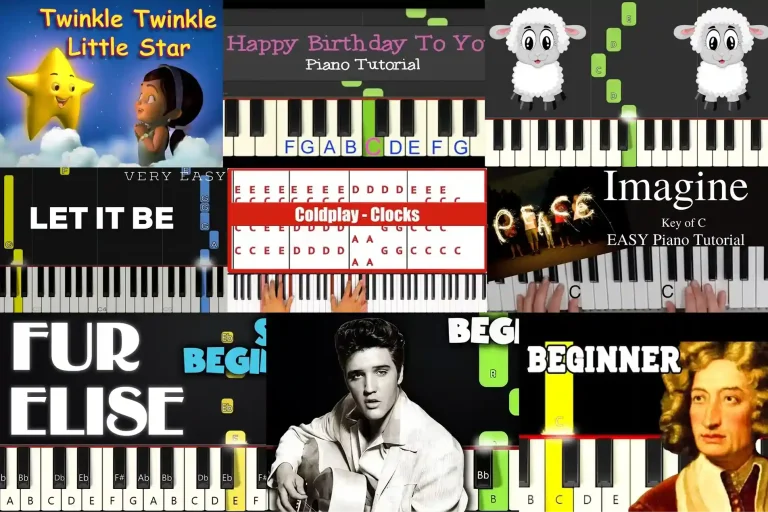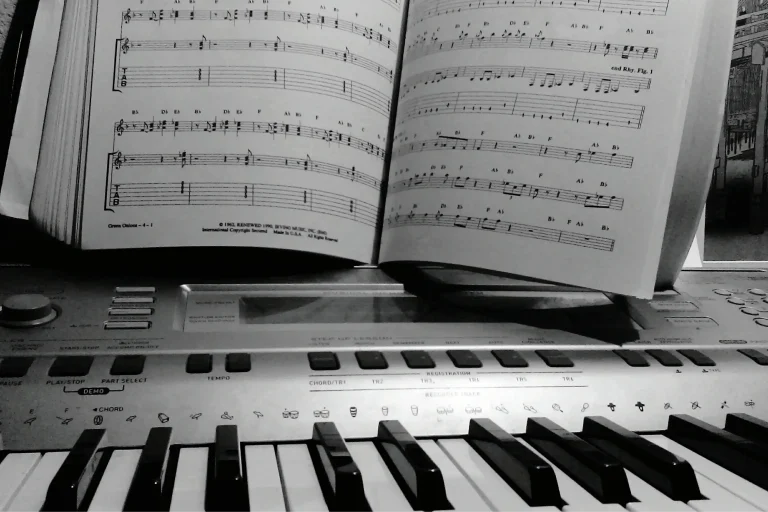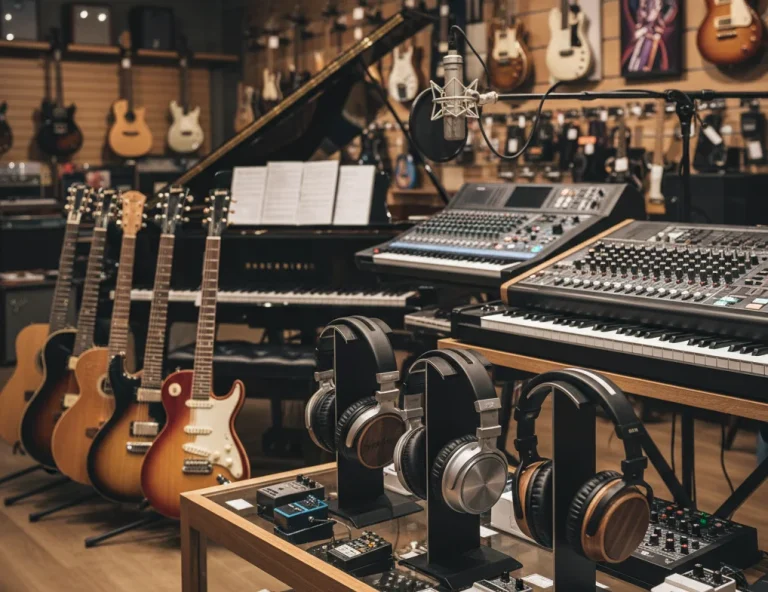All Topics
- Alchemizing Music Concepts for Students
- Artist Spotlight
- artium gift card
- Artium Maestros
- Artium News
- buying guide
- Carnatic Music
- Devotional Music
- Editorials by Ananth Vaidyanathan
- Film Music
- Guitar
- Hindustani Classical Music
- Indian Classical Music
- Indian Folk Music
- Insights
- Instruments
- Karaoke Singing
- Keyboard
- Kids Music
- maestros
- Music Education
- Music for Kids
- Music Industry
- Music Instruments
- Music Legends
- Music Theory
- Music Therapy
- Piano
- piano guide
- Success Stories
- Tamil Film Music
- Telugu Film Music
- Time Theory
- Tools
- Uncategorized
- Vocal Singing
- Vocals
- western classical music
- western music
- Western vocal music
What’s the Best Way to Learn Piano? Must-Have Resources and Tools For Beginners
What’s the Best Way to Learn Piano? Must-Have Resources and Tools For Beginners

Table of Contents
The start of your piano journey can bring mixed emotions. It can bring excitement, but also a lot of questions.
Especially if you are a complete beginner or a parent enrolling your child for their first online piano lessons.
It is natural to have doubts, such as ‘What kind of keyboard should I buy?’ ‘Do I need a metronome?’ Or ‘how do I stay consistent with daily practice?’ Don’t worry, we are here to guide you through this journey.
Whether you are looking for piano lessons for kids or starting your online piano classes, having access to the right tools and resources can make a world of difference.
In this blog, we will explore the best way to learn piano and everything else you need to progress faster. From picking the right instrument and learning materials to apps, books, and practice hacks, we will cover everything you need.
Let’s make your learning journey smoother, brighter, and more musical!
But before that…
If you’re really excited to start your journey in music, start with a free piano trial lesson today!
Why Having the Right Resources Is Important in a Piano Course for Beginners?
Starting with the proper resources ensures your piano lessons are practical and enjoyable. The right tools can accelerate your learning and prevent frustration. For example, practising with a simplified music book or using a metronome app can clarify concepts that might confuse you if you were to go solo.
A well-structured online piano course is the best way to learn piano, which often recommends specific resources, such as piano notes for beginners, guides, or practice tracks, to reinforce each lesson. Equipping yourself with these will build a stronger foundation and help you stay motivated, as you can see real progress in your playing.
Essential Tools for Learning Piano Easily
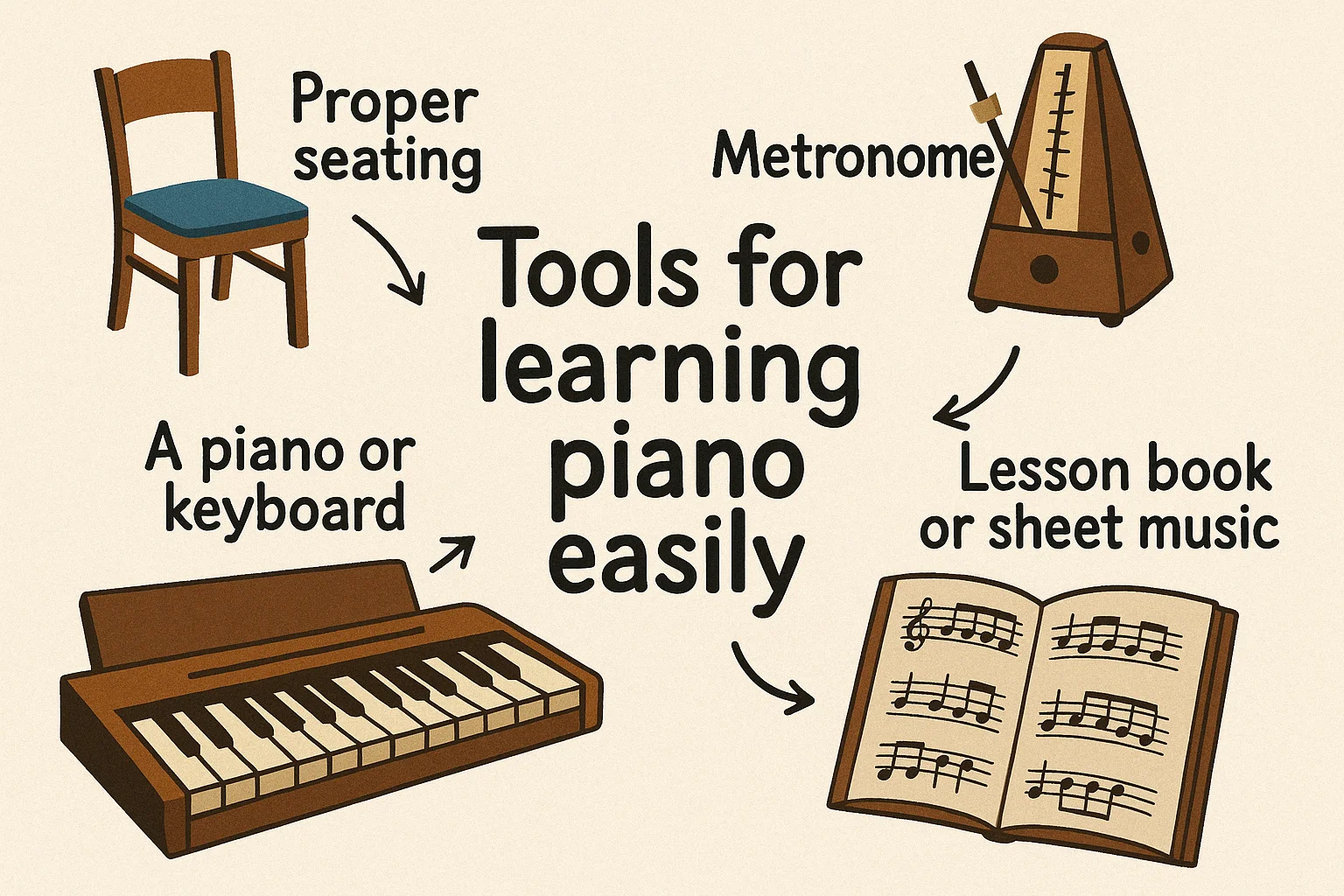
Make sure you have these essentials for a smooth learning experience in your piano lessons:
- A Piano or Keyboard
You’ll need an instrument to practice on. It doesn’t have to be a grand piano – an electronic keyboard or digital piano with full-size keys will work perfectly for beginners.
- Proper Seating
Sit on a piano bench or sturdy chair at the right height and maintain good posture while playing.
- Metronome
A device (or app) that ticks in time. It helps you keep a steady beat and develop good rhythm.
- Lesson Book or Sheet Music
Get a beginner-friendly piano book or simple sheet music. This gives you structured songs and exercises to practice outside of your lessons.
How to Choose Between a Digital or Acoustic Piano?
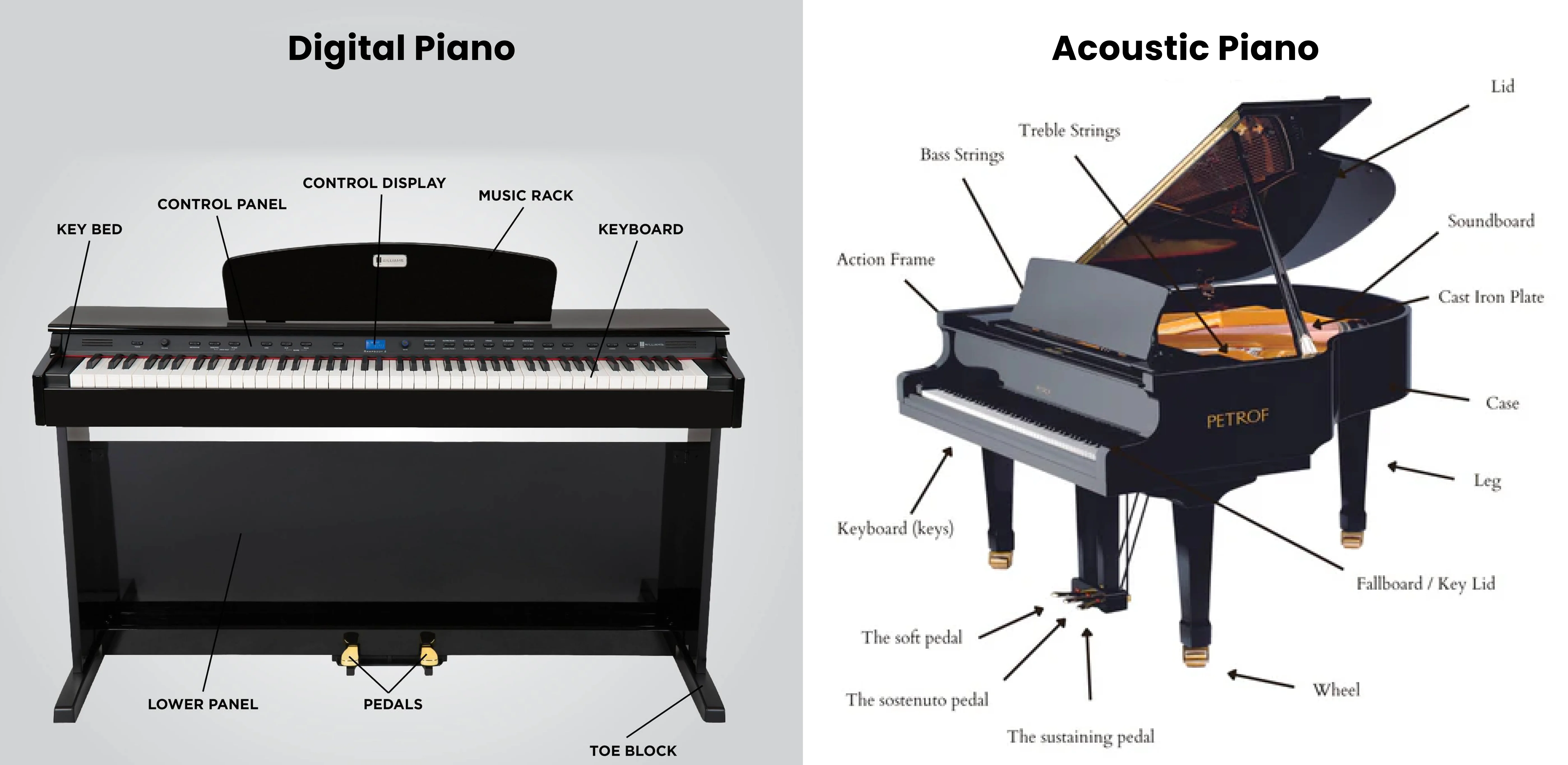
In their quest to explore the best way to learn piano, beginners often wonder whether to start with a digital piano or an acoustic piano. Both can work! Here’s a quick comparison:
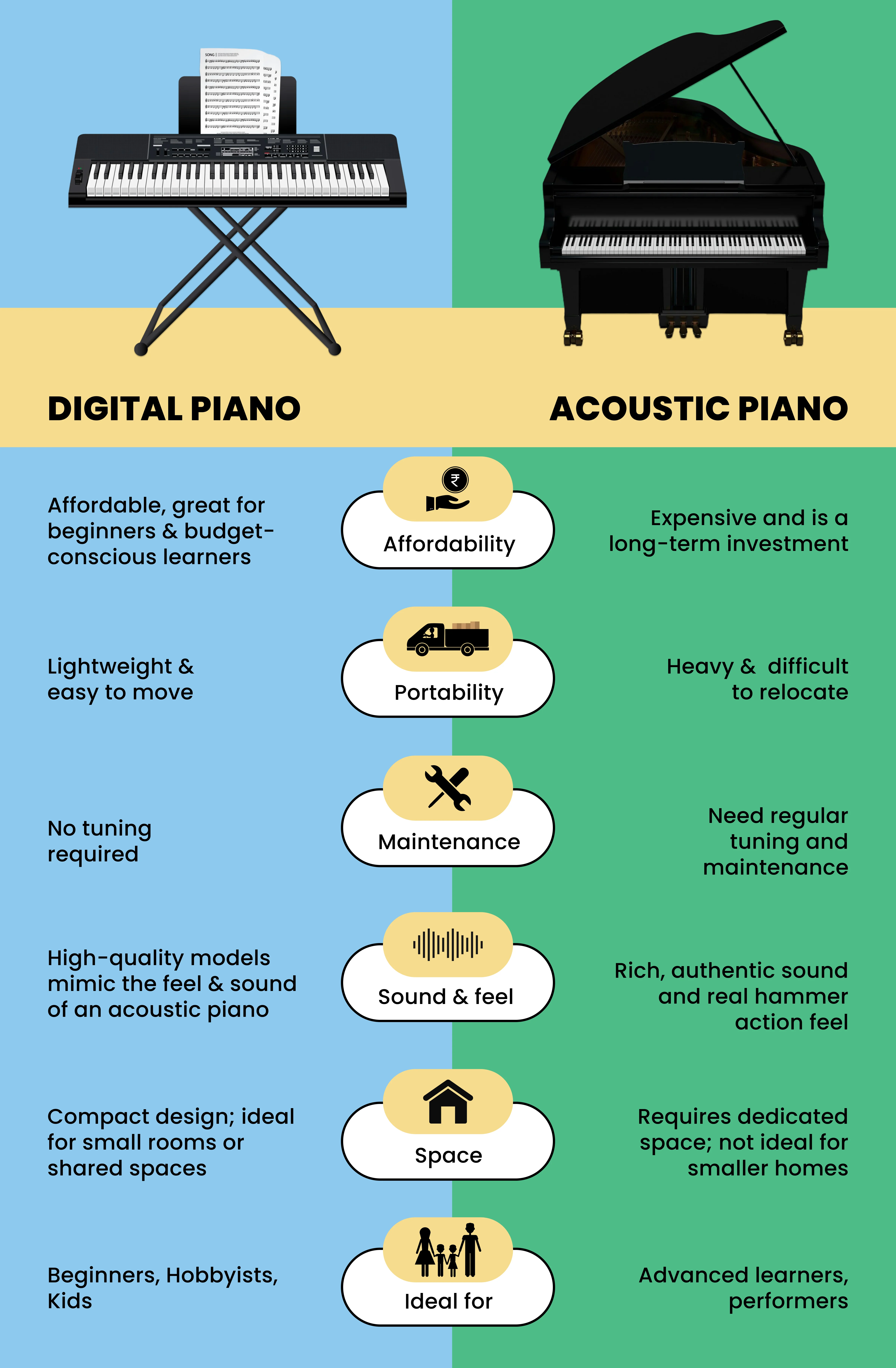
The bottom line is that the best way to learn piano is on a good digital piano or keyboard. Many beginners start digital and switch to an acoustic later if they want. At the Artium Store, you can explore a range of instruments recommended by piano experts.
Read More: Types Of Pianos
Best Online Piano Learning Apps and Websites for Beginners
Supplement your lessons with these handy digital resources:
- Simply Piano
A popular app that listens as you play and teaches you step-by-step, with fun, game-like lessons.
- Artium Academy
Piano course designed & certified by Grammy award nominee and Godfather of Indian Jazz, Louiz Banks. Experience fun and engaging online piano learning with an interactive dashboard, lessons, and real-time feedback.
- YouTube Tutorials
YouTube has countless free piano tutorials and lesson videos. You can learn how to play popular piano songs or revisit the basics at any time by watching experienced players explain the techniques.
Easy Sheet Music and Notes to Start Playing
Start with simple tunes you know, such as nursery rhymes and basic melodies, to build confidence. Using beginner sheet music for these songs – sometimes marked with letter names on the notes – will make reading music easier.
You can also find plenty of free, easy piano pieces and exercises online. As you progress, slowly learn the basics of reading music, including treble and bass clef notes and rhythm values. This blog, Piano Music Notes for Beginners, is an excellent resource for learning to read sheet music in a step-by-step manner.
How a Metronome Can Improve Your Timing and Speed?
The best way to learn piano confidently is to use a metronome. It is a simple tool that produces a steady tick-tock. Here’s why it’s great for beginners:
- Keep a Steady Rhythm: Practising with a metronome forces you to play in time. It trains you not to speed up or slow down unintentionally, improving your overall timing.
- Build Speed Gradually: Use the metronome to increase tempo in small increments. Start a piece at a slow tempo and gradually increase it as you master it. This helps you learn fast passages cleanly, without rushing and making mistakes.
Even a few minutes with a metronome each practice session will make a difference. You can use a physical metronome or just practice it virtually on Artium’s online metronome.
Online vs. Offline Piano Lessons – Which One is Best for Beginners?
- Offline (In-Person) Lessons: You attend weekly sessions with a teacher. The benefit is hands-on guidance – your teacher can physically correct your hand position or posture. However, you have to travel for lessons, and your choice of teachers is limited to those in your local area, who may have schedules that are inconvenient for you.
- Online Lessons: We believe that the best way to learn piano is through online lessons. You meet your teacher over a live video call. You can learn from home (no commute!) and even pick from instructors worldwide. It’s very flexible, although it requires a good internet connection and some technical setup. Many students now find online lessons just as practical as in-person ones.
Setting Up the Perfect Piano Practice Space at Home
- Quiet, Dedicated Spot: Choose a place in your home for the piano where you won’t be easily disturbed. Fewer distractions mean better focus during practice.
- Comfortable Setup: Sit on a proper piano bench or chair at the correct height, with your arms parallel to the floor. Make sure the area is well-lit so you can see the keys and sheet music clearly. Good posture and lighting help you practice longer without fatigue.
- Keep Materials Handy: Organise your lesson books, sheet music, metronome, and pencil near the piano. Having everything within arm’s reach makes your practice time efficient. Additionally, a tidy and inviting space will encourage you (or your child) to practice more frequently.
Extra Learning Aids – Books, Video Tutorials, and Flashcards
Besides your main piano lessons, a few supplemental resources can boost your progress:
- Lesson Books: A good beginner’s piano method book provides a step-by-step path for learning. These books introduce new concepts in a logical order, accompanied by exercises and simple songs. Working through a lesson book alongside your classes helps reinforce fundamentals each week.
- Video Tutorials: The popularity of online learning has become a boon for beginners and all aspiring individuals. Google and YouTube allow you to instantly learn a new song or technique. Use them to supplement your learning.
- Flashcards and Apps: Flashcards or quiz apps are the best way to maximise your learning. Spend time on them to quiz yourself, identify notes, set intervals, or sharpen your music reading skills when away from the piano.
5 Top Tips to Stay Motivated and Improve Your Piano Skills Faster
Staying motivated will help you make steady progress. Remember to:
- Set clear goals: Decide what you want to achieve (learn a song, master a scale, etc.) and celebrate when you reach those milestones.
- Practice consistently: A little daily practice is more effective than one big session a week. Consistency builds skill.
- Mix work and fun: Balance your practice between challenging exercises and songs you enjoy. This keeps practice enjoyable.
- Share your music: Play for friends or family, or record yourself to share. Knowing you’ll share can motivate you to polish a piece, and praise from others feels great.
- Stay inspired and patient: Listen to music that excites you. Be patient with yourself on tough days – every pianist faces challenges. The key is to keep going and enjoy the journey.
Final Thoughts On Online Piano Training
The best way to learn piano is by building a relationship with the instrument, one that grows over time and with practice, alongside the music itself. What matters is having access to the right tools and guidance. With the proper support, even the most complex concepts become manageable, and the learning becomes fun.
At Artium Academy, we understand this and have designed a rewarding, structured, and deeply personalised curriculum. Designed by Louiz Banks, a Grammy-nominated legend and Artium’s Faculty Head for Piano, our courses combine world-class knowledge with step-by-step guidance.
So whether you’re a parent seeking the best piano online course for your child or an adult exploring music for the first time and wants to choose the Best Way to Learn Piano Online, trust Artium to help you thrive. Book your free trial class today and start your musical journey smartly.

